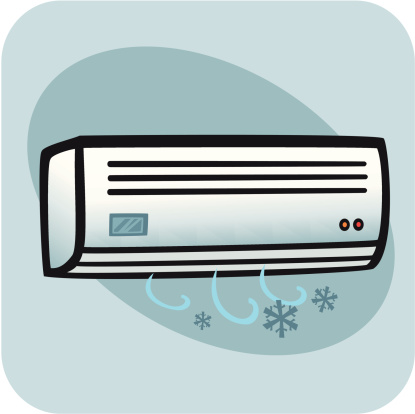
Detecting a frozen air conditioner is not something that you can do with your sense of sight because the ice wouldn’t be visible. If you feel that your air conditioner is not cooling the room as efficiently as it used to then simply place your hand over the supply register of the device. If you’re feeling very little airflow then it means that your air conditioner has frozen.
To deal with a frozen air conditioner, you need to switch it off immediately so that this problem does not cause further damage to the AC’s compressor. Next, give the AC plenty of time so that the ice can melt. At the same time, try to locate the condensate drain and check to see whether it is blocked or not; to do this you will have to open up the ductwork. If it is not blocked then you’re in luck because you can simply suction out the troublesome water from the AC by using a wet-dry shop vacuum cleaner.
If you’re getting impatient with the melting process then you can turn on the fan (mind you, not the compressor) to enable the ice to melt faster. Additionally, you can also use a blow dryer against the AC’s evaporator coil.
In case of a frozen window air conditioner, you need to tilt the device backwards slightly so that the water from the melting ice would drain out easily to the AC’s exterior. Before you do this, you should ensure that the condensate drain hole of the AC is clear; this way the water will be able to filter out without any hassle. After the ice has melted and you’ve thrown away the water on the unblocked drain pan, you can switch the AC on and you’ll notice a huge difference in its cooling power immediately!
To prevent your AC from turning into a frozen air conditioner again in the future you should educate yourself about the causes behind it. Window air conditioner that has not been titled properly, air filter that has become dirty, refrigerant levels that have dropped very low, supply registers that are blocked, etc are all capable of causing the AC unit to get frozen.
For more useful articles about ACs follow us here.

